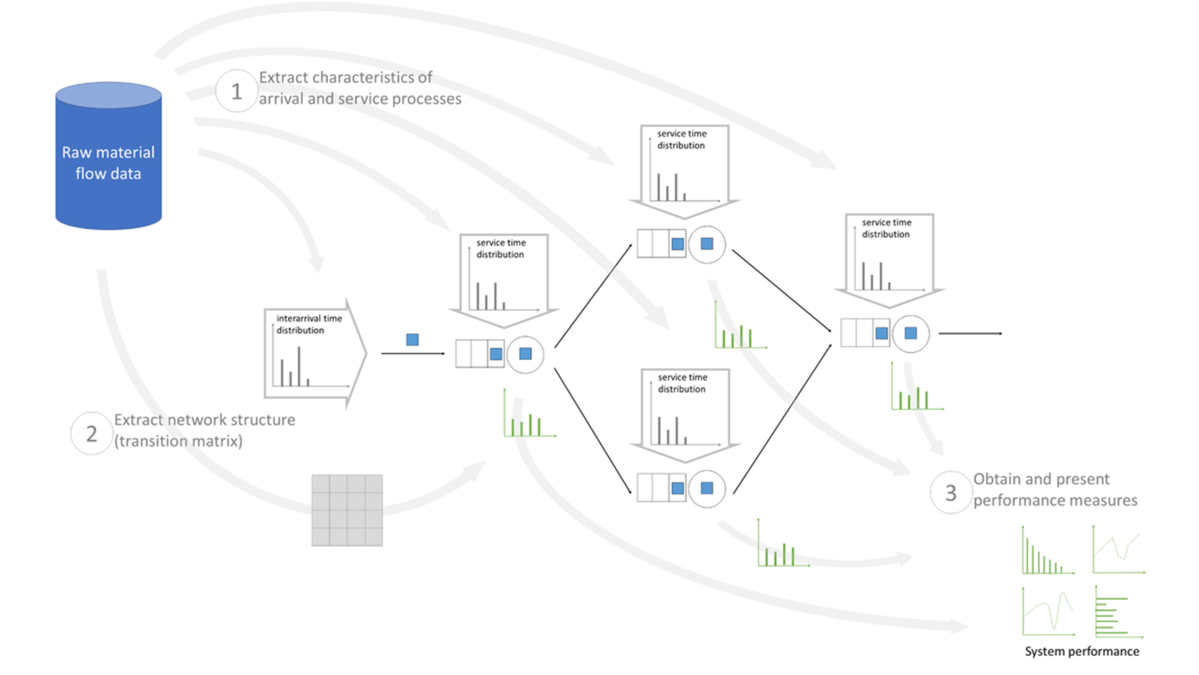Performance evaluation of material flow systems
The design of material flow and production systems plays a decisive role in the achievable performance and therefore also in their economic efficiency. This requires robust and reliable production processes with efficient material and information flows. However, stochastic incidents, such as machine breakdowns, make it difficult to quantitatively analyze the processes, which is necessary as a basis for decision-making for an efficient design.
At the beginning of the planning phase for a new material flow or production system, there are a large number of potential system configurations that need to be analyzed in terms of various key performance indicators. The planner's task is to identify the alternative that best fulfills both quantitative and qualitative objectives. We classify quantitative methods of performance evaluation for material flow and production systems into continuous-time queueing theory, discrete-time queueing theory and simulation models, based on the level of detail and the computing time required.
We use both analytical and simulation-based stochastic models to evaluate the performance of material flow and production systems. Of particular focus is queueing theory in the discrete-time domain. Discrete-time models have an advantage over continuous-time operation theory in that the available data, such as processing times, can be used directly and does not have to be laboriously approximated by continuous distributions. In addition, discrete-time queueing theory is not limited to the calculation of expected values when determining key performance indicators, such as the processing time of an order – With discrete-time models, we compute the entire probability distributions. The fast and accurate numerical calculation of key performance indicators in material flow and production systems using discrete-time queueing theory thus closes the gap between (often imprecise) purely analytical considerations and (always complex) simulation studies.
In the detailed planning of material flow and production systems, however, the simulation of the system is usually indispensable. We can draw on extensive experience in the field of material flow and production simulation, including with the simulation software Anylogic or Plant Simulation.


